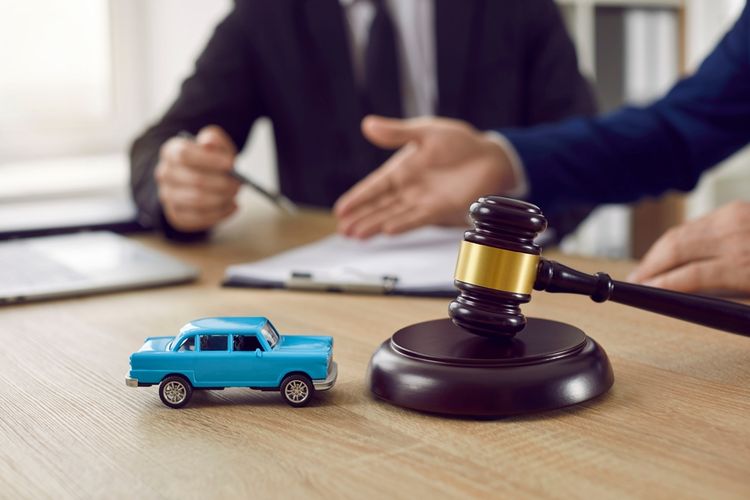Commercial driver’s license (CDL) holders bear significant responsibilities. Transporting goods, passengers, or hazardous materials, their actions on the road directly impact public safety. However, what happens if a commercial driver faces a DUI conviction?
In the U.S., commercial drivers are held to a higher standard than non-commercial drivers when it comes to DUI (Driving Under the Influence) or DWI (Driving While Intoxicated) offenses. Here are some potential impacts of a DUI conviction on a CDL, which our dui defense lawyers in Decatur will go more in depth through this article:
- Suspension or Revocation: A first-time DUI conviction, while operating any vehicle (even a personal one), can lead to a suspension of the CDL for a specific period, usually 1 year. A second DUI conviction might lead to a lifetime revocation.
- Stricter Blood Alcohol Limits: Commercial drivers typically face stricter blood alcohol concentration (BAC) limits. In many states, a BAC of 0.04% or higher while operating a commercial vehicle is grounds for a DUI charge, compared to the typical 0.08% for non-commercial drivers.
- Employment Impacts: Many companies have strict policies against hiring or retaining drivers with DUI convictions. A DUI can, therefore, jeopardize current employment or future job prospects.
- Increased Insurance Rates: A DUI conviction can lead to higher insurance premiums or even denial of coverage.
- Mandatory Alcohol Programs: Depending on the jurisdiction, commercial drivers might be required to attend alcohol education or treatment programs after a DUI conviction.
- Endorsement Issues: Special endorsements (like those for transporting hazardous materials) may be denied or revoked after a DUI conviction.
- Permanent Record: A DUI conviction typically remains on a driver’s record for many years and can be viewed by potential employers, insurers, and others.
- Legal Consequences: Beyond the impact on the CDL, commercial drivers face the same potential legal consequences as non-commercial drivers after a DUI conviction, including fines, jail time, probation, and other penalties.
The Stringent Blood Alcohol Concentration (BAC) Limits for CDL Holders
One of the most prominent distinctions for commercial drivers is the stricter BAC limits. Unlike standard license holders who typically face legal consequences at a BAC of 0.08%, CDL drivers are above the federally mandated legal limit with a BAC of just 0.04%.
The Underlying Reasoning
Safety is paramount. Commercial vehicles, due to their size and the nature of their cargo, pose a greater threat on the road. A minor lapse in judgment can lead to catastrophic consequences.
Suspension and Revocation: The Direct Repercussions
A DUI conviction can have immediate and lasting effects on a CDL:
- First-time Conviction: The CDL is usually suspended for 1 year, even if the driver was operating a personal vehicle at the time of the offense.
- Subsequent Convictions: A second offense may lead to a lifetime ban on holding a CDL.
Employment Implications: The Unseen Domino Effect
Given the industry’s stringent safety standards, many companies hesitate to hire or even retain drivers with DUI records.
Potential Job Loss
Having a CDL doesn’t guarantee job security, especially post-DUI. Convictions usually trigger immediate reviews, often leading to termination.
Diminished Job Prospects
Future employment opportunities shrink considerably. A DUI mark remains on records for years, making it a persistent deterrent for potential employers.
Insurance Hurdles: The Rising Premiums and Denials
Post-DUI, drivers not only grapple with potential job loss but also with skyrocketing insurance premiums. Many insurance companies view convicted drivers as high-risk, leading to either exorbitant rates or outright policy denials.
Mandatory Rehabilitation: The Path to Redemption
Certain jurisdictions require DUI-convicted commercial drivers to attend alcohol education or treatment programs. This mandate, though burdensome, provides an avenue for drivers to demonstrate responsibility and commitment to sobriety.
Endorsement Challenges: The Specialized Driving Impediments
Commercial drivers often possess endorsements allowing them to transport hazardous materials or operate specific vehicle types. DUI convictions can jeopardize these endorsements, further narrowing the scope of job opportunities.
What is the Process for Getting My CDL Back After a DUI?
In the state of Georgia, a DUI conviction can have severe consequences for Commercial Driver’s License (CDL) holders. To regain a CDL license after a DUI in Georgia, assuming it was just a DUI and no truck accident was involved, follow these steps:
1. Serve the Suspension Period
Georgia mandates strict suspension periods for CDL holders convicted of a DUI:
- First Offense: Typically, there’s a one-year suspension of the CDL, regardless of whether the driver was operating a commercial or personal vehicle at the time of the DUI.
- Second Offense or More: The driver may face a lifetime CDL disqualification, depending on the circumstances surrounding the offenses.
2. Complete DUI School
Georgia requires individuals convicted of a DUI to attend and successfully complete a state-approved DUI Alcohol or Drug Use Risk Reduction Program. You’ll receive a Certificate of Completion at the end of this course, which will be necessary for the reinstatement process.
3. Pay Reinstatement Fees
After serving the suspension period and completing the mandatory DUI school, you’ll need to pay a reinstatement fee to the Georgia Department of Driver Services (DDS).
4. Retake and Pass Required Examinations
In some cases, particularly for extended suspensions, the driver may be required to retake and pass both the written and road skills tests for commercial driving.
5. Obtain SR-22 Insurance
An SR-22 is a form that proves you carry the state’s minimum required liability insurance. Following a DUI conviction, the state might require you to obtain an SR-22 from your insurance company and maintain it for a specified period, usually three years.
6. Avoid Further Violations
It’s crucial to ensure no further traffic violations, especially alcohol or drug-related ones, during the reinstatement process and after regaining the CDL. Additional offenses can lead to more prolonged suspensions or permanent disqualifications.
7. Consult Legal Counsel
While the aforementioned steps provide a general framework, individual cases may vary based on the specifics of the DUI conviction and any other concurrent violations. It’s advisable to consult with a knowledgeable attorney specializing in DUI and CDL cases in Georgia to understand all the nuances and requirements related to your situation.
Remember, the primary goal of these stringent regulations is to ensure the safety of all road users. CDL holders, given the larger and potentially more hazardous nature of their vehicles, are held to a higher standard. Hence, driving responsibly and adhering to all laws is the best way to maintain a CDL in good standing.
Contact the DUI Defense Lawyers at SHElaw firm® if Your CDL Has Been Affected by a DUI!
A DUI conviction’s repercussions on a commercial driver’s license holder are extensive and multifaceted. From immediate CDL suspensions to long-term career and financial ramifications, the implications are profound. It’s imperative for all CDL holders to not drink and drive, remain aware and drive responsibly, ensuring safety for themselves, other road users, and their career prospects.
Remember, the specifics of how a DUI impacts a CDL can vary based on state laws and individual circumstances. If you or someone you know faces such a situation, it’s crucial to consult with a dui defense attorney near you, like the team at SHElaw firm®, that is familiar with DUI laws in your jurisdiction.









